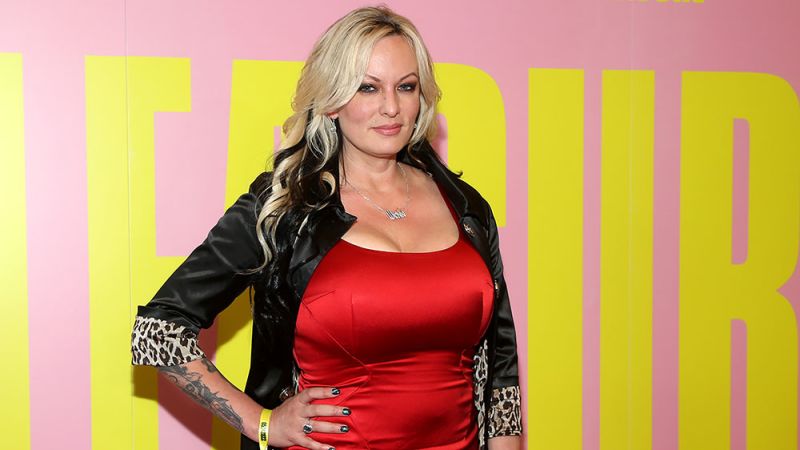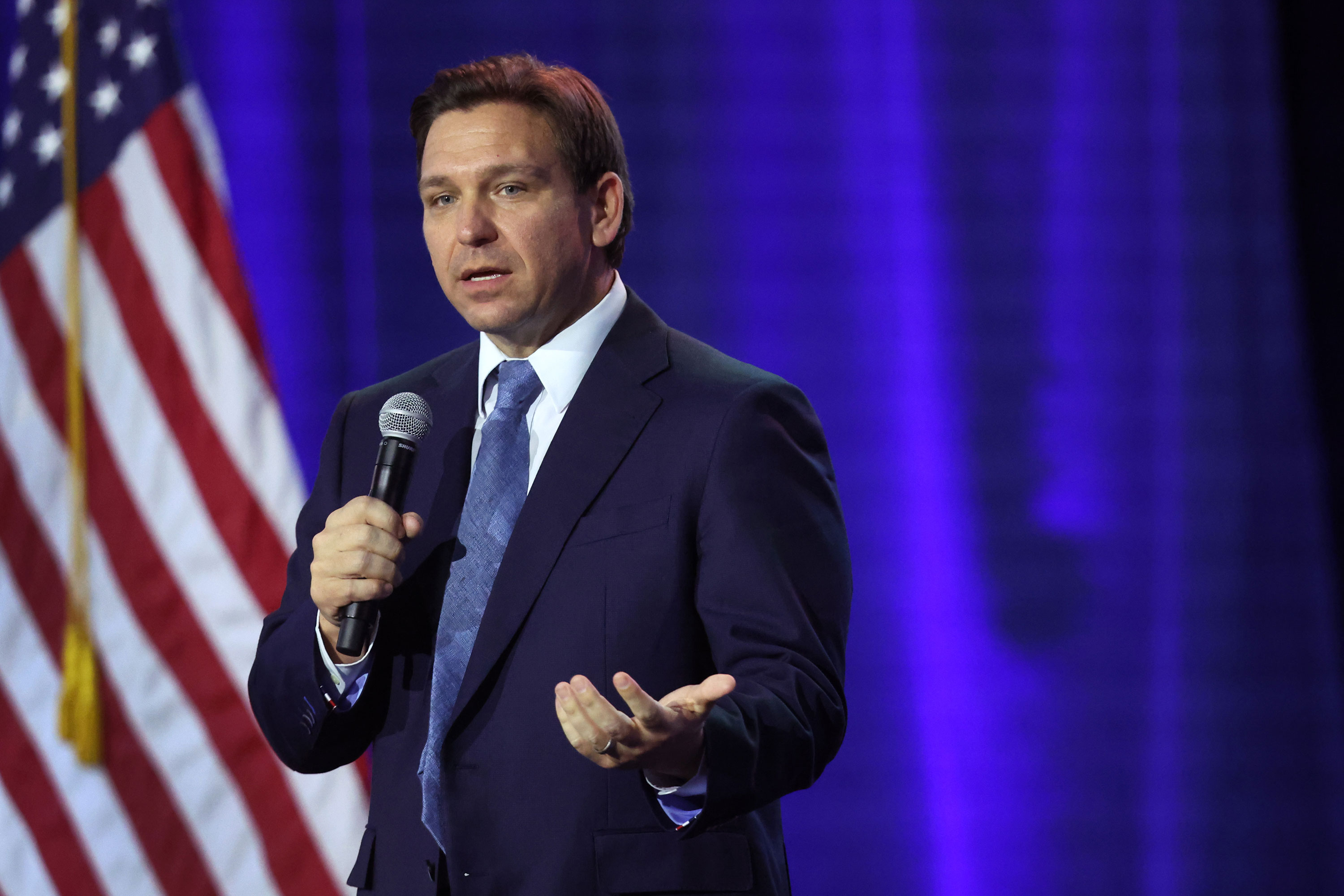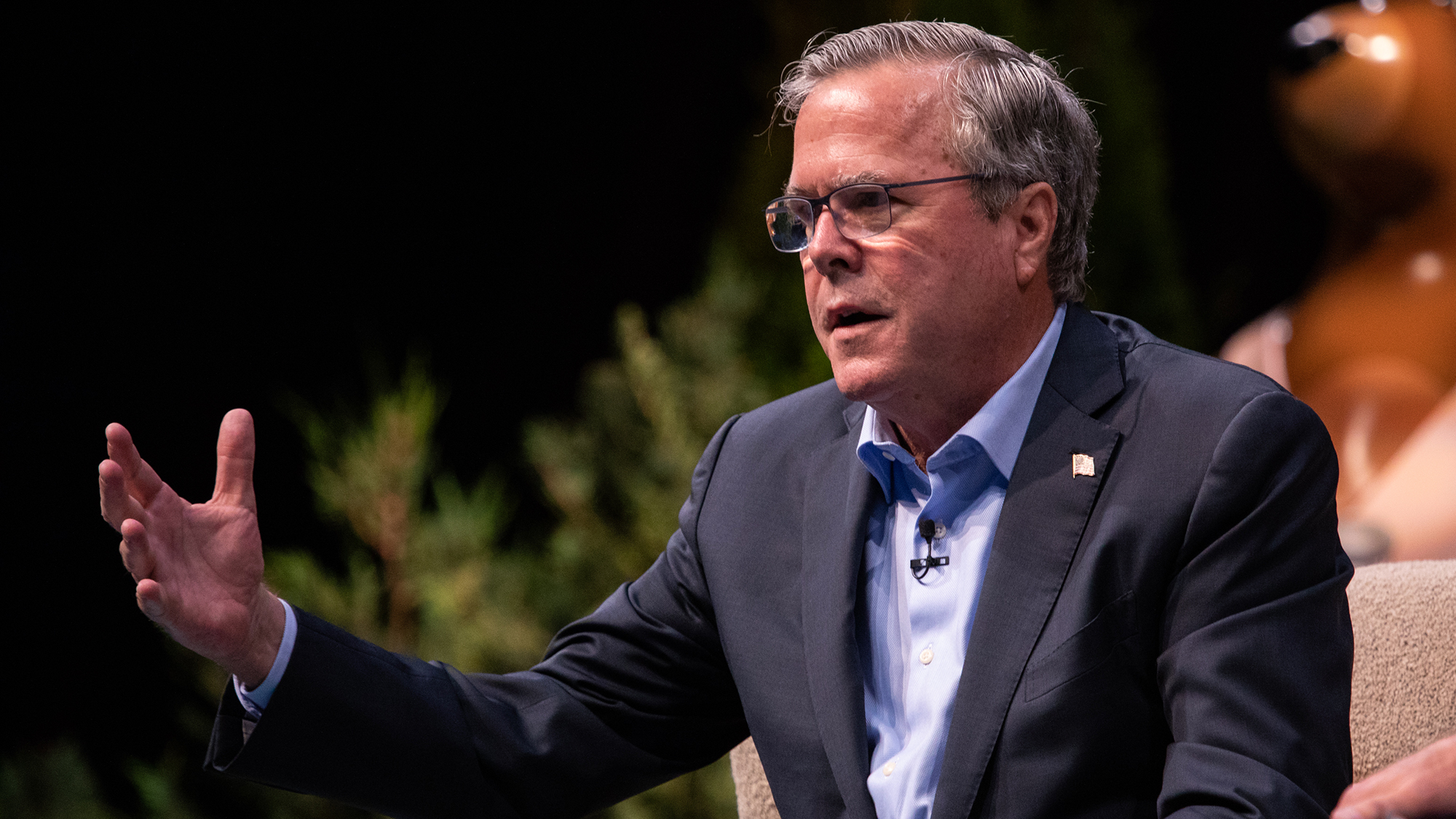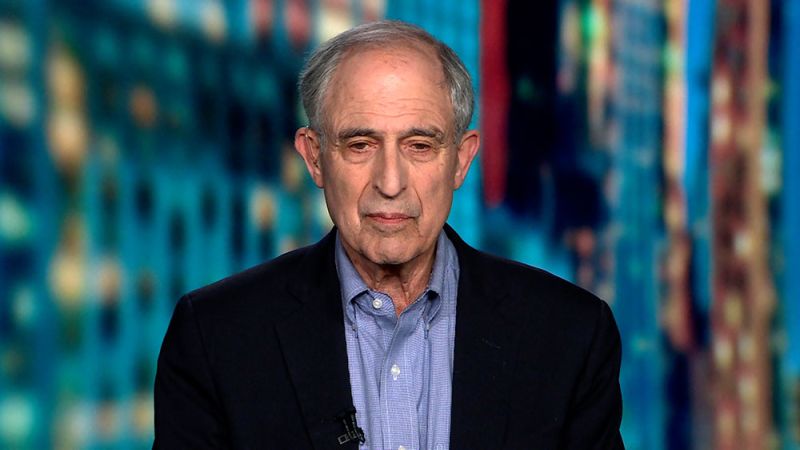
We’ve wrapped up our live coverage for the day. You can read more about Trump’s indictment here, or scroll through the updates below.
Judge Juan Merchan will preside over Trump’s criminal arraignment. Here’s what you need to know
From CNN’s Sydney Kashiwagi
When Donald Trump enters a New York courtroom Tuesday, he’ll face a seasoned judge who is no stranger to the former president’s orbit.
Acting New York Supreme Court Judge Juan Merchan has sentenced Trump’s close confidant Allen Weisselberg to prison, presided over the Trump Organization tax fraud trial and overseen former adviser Steve Bannon’s criminal fraud case.
But Trump’s historic arraignment can be viewed as Merchan’s most high-profile case to date, even after a long career atop the state-level trial court.
Merchan has been described by observers as a “tough” judge, yet one who is fair, no matter who is before him.
Here’s more background on the justice whose courtroom will soon be thrust into the spotlight:
Born in Bogota, Colombia, Merchan emigrated to the United States at the age of six and grew up in the New York City neighborhood of Jackson Heights, Queens, according to a New York Times profile of the judge. He was the first in his family to go to college.
Merchan initially studied business at Baruch College in New York. He dropped out of school to go work, only to return several years later to finish school so that he could get his law degree, the Times reported.
He eventually received his law degree from Hofstra University.
Attorneys who have appeared before him told CNN that Merchan does not stand for disruptions or delays, and he’s known to maintain control of his courtroom even when his cases draw considerable attention.
Trump attorney Timothy Parlatore said during an interview Friday on CNN that Merchan was “not easy” on him when he tried a case before him, but said the judge likely will be fair.
“I’ve tried a case in front of him before. He could be tough. I don’t think it’s necessarily going to be something that’s going to change his ability to evaluate the facts and the law in this case,” Parlatore said.
Trump advisers concerned about fairness of potential trial in Manhattan; attorneys not pursuing venue change
From CNN’s Kristen Holmes, Paula Reid and Alayna Treene
Following his indictment by Manhattan District Attorney Alvin Bragg, former President Donald Trump’s advisers and allies have expressed concern about Trump potentially being tried in Manhattan, pointing to the borough’s predominately Democratic-voting population as reason the former president will not get a fair trial.
“There is no way he gets a fair jury,” one adviser said. “What are they going to say? ‘Have you ever heard of Donald Trump?’ Have you been living under a rock?'”
However, Trump’s attorneys are not currently considering asking for a change of venue and do not plan to make many decisions until they see the indictment, which is expected to happen Tuesday when Trump is arraigned.
Trump’s indictment remains under seal, so it’s unclear what charges the former president faces, and there’s a long road ahead before any potential trial. But the initial discussions among advisers indicate at least some of Trump’s political team’s concerns moving forward.
In a statement, Trump’s campaign did not address the location of the potential trial and instead again slammed Bragg’s investigation as a “political persecution.”
“The Manhattan DA’s crusade against President Donald J. Trump is nothing more than political persecution and, just like with every other hoax that President Trump has been targeted with, there is no crime whatsoever, except for election interference by radical Democrats through weaponization of our justice system against President Trump and his supporters,” the statement said.
Stormy Daniels calls Trump indictment a vindication, but says she fears for her safety
From CNN’s Jorge Engels

The grand jury indictment of former US President Donald Trump was a “vindication,” “monumental” and “epic,” adult film star Stormy Daniels told the British newspaper, The Times.
Daniels also said she received a torrent of abuse within hours of the indictment and that for the first time, she is scared.
“The number and the intensity is the same as it was the first time around, but this time it’s straight-up violent,” Daniels said in the interview published Friday.
“It’s especially scary because Trump himself is inciting violence and encouraging it,” she added.
Daniels was supposed to appear on Britain’s TalkTV for an exclusive interview with host Piers Morgan Friday afternoon. Piers Morgan wrote on his official Twitter account that Daniels had to “suddenly postpone” the interview minutes before it was scheduled to begin due to “security issues.”
Prominent Republicans weigh in on Trump’s historic indictment
From CNN’s Veronica Stracqualursi, Morgan Rimmer and Alayna Treene

Republican lawmakers and former elected officials have spoken out about former President Donald Trump’s historic indictment, many of them dismissing the allegations of misconduct as politically motivated.
Here are some of the latest comments from officials and figures in the former president’s party:
Florida Gov. Ron DeSantis: DeSantis attacked Manhattan District Attorney Alvin Bragg for indicting “a former president on misdemeanor offenses” for “purely political purposes” in a speech Saturday at the Pennsylvania Leadership Conference.
“That is when you know that the law has been weaponized for political purposes; that is when you know that the left is using that to target their political opponent,” DeSantis said.
On Thursday, shortly after the news broke that the New York grand jury indicted Trump, DeSantis issued a similar statement on Twitter that criticized Bragg, but didn’t mention the former president.
The indictment remains under seal so it is not publicly known what charges Trump faces.
Virginia Gov. Glenn Youngkin: Youngkin briefly chided Bragg over the grand jury’s indictment.
“This is the prosecutor who told everybody he was going to go do this in order to get elected,” the Republican governor told reporters in Virginia.
(Bragg ran as a reformer, and on the campaign trail he highlighted his prior work on lawsuits against the Trump administration.)
Youngkin had come to Trump’s defense on Twitter Thursday night, without mentioning the former president by name. He wrote it’s “beyond belief” that Bragg “indicted a former President and current presidential candidate for pure political gain.”
In his remarks Friday, Youngkin pivoted to a call for the US to “put this kind of politics down,” and said he is more concerned with helping Virginia residents than commenting further on divisive national narratives.

Former Florida Gov. Jeb Bush: Bush defended Trump, calling the the Manhattan grand jury indictment “very political” and “not a matter of justice” in a tweet Saturday morning.
“Bragg’s predecessor didn’t take up the case. The Justice Department didn’t take up the case,” wrote Bush, one of Trump’s top 2016 presidential rivals.
“This is very political, not a matter of justice,” he added. “In this case, let the jury be the voters.”
Bush called for a Republican to challenge Trump in his bid for reelection in 2020. Trump lobbed insults at Bush on multiple occasions during the 2016 Republican primary before Bush suspended his campaign. The former governor said he would not vote for Trump.
Former Attorney General Bill Barr: Barr, who served as attorney general under the Trump administration before stepping down over the former president’s election lies, called the indictment a “political hit job,” arguing that it’s a “weak case.”
“It’s the archetypal abuse of the prosecutorial function,” Barr said at the National Review Institute summit held in Washington, DC. “It’s a disgrace if it turns out what we think it is.”
Nonetheless, Barr said he believed it would be politically damaging to the Republican Party. He called it a “no-lose situation” for Democrats, allowing them to focus the run-up to the 2024 election on Trump, either handing him the nomination or leaving the eventual nominee with another scandal to deal with.
But “legally, I think, from what I understand, it’s a pathetically weak case,” he said.
Read more reactions from the GOP here.
Here’s what is expected to happen next in court for Donald Trump
From CNN’s Tierney Sneed, Holmes Lybrand and Hannah Rabinowitz
A Manhattan grand jury’s indictment of former President Donald Trump sets in motion a criminal process that will, in some ways, work like that of any other defendant. In other ways, however, it will look very different.
Here’s what’s expected to happen next in court for the former president:
First appearance: Trump will likely be allowed to turn himself in voluntarily, and multiple sources told CNN the former president is expected to appear in court Tuesday for his arraignment. What happens in a first appearance can vary.
If a first appearance is also an arraignment, a plea is expected to be entered. It is typical that release conditions are discussed – such as travel restrictions or home confinement – at a first appearance and defendants are informed of their rights. The lawyers for the government and the defendant also often enter their appearance at this stage of the court proceedings.
Additional security: Trump’s status as a former president who is currently running again for the Republican presidential nomination in 2024 will undoubtedly inject additional security and practical concerns around the next steps in his case. Whatever travel Trump must take for his arraignment will need to be coordinated with Secret Service and other law enforcement agencies. Those conversations between the Secret Service, the US Marshals Service and the New York Police Department began last month, a senior NYPD source told CNN.
You can learn more about what to expect Tuesday from this interview with criminal defense attorney Bernarda Villalona:
How Republican lawmakers are reacting to the indictment of Donald Trump
From CNN staff
Some Republican lawmakers are criticizing the Manhattan grand jury’s Thursday indictment of Donald Trump. Here’s what they’re saying:
Sen. John Cornyn, a member of Senate GOP leadership, told CNN the Trump indictment “looks to me like this is an opportunity for this (district attorney) to try to make headlines and gain publicity.”
Rep. James Comer: The House Oversight Chairman attacked the “political witch-hunt” of former President Donald Trump the day after he was indicted by Manhattan District Attorney Alvin Bragg.
“One thing that we’re concerned about in Washington, Congressman Jordan and myself, is if there is coordination being conducted here between Merrick Garland, DOJ and all these different entities that are going after Donald Trump,” Comer told Fox on Friday. “This is a political witch-hunt, they are doing everything in their ability to create a narrative that would hurt Donald Trump.”
Comer told CNN that Bragg’s investigation “a political stunt.”
Before the indictment, Comer and two other House Chairman sent a letter requesting testimony and information from Bragg on his investigation.
Sen. John Barrasso: The Senate GOP Conference Chairman called the indictment a “political hit job” in a statement to CNN.
“This is a politically-motivated prosecution by a far-left activist. If it was anyone other than President Trump, a case like this would never be brought. Instead of ordering political hit jobs, New York prosecutors should focus on getting violent criminals off the streets,” he said.
Rep. Marjorie Taylor Greene: The key Trump ally, who is also close to House GOP leadership, tweeted that she plans on traveling to New York City on Tuesday to protest Donald Trump’s indictment – the latest sign of how Republicans are racing to defend the former president.
Greene serves on the House Oversight Committee, one of the key committees trying to investigate the Manhattan District Attorney’s office, and told CNN she regularly keeps Trump up to date on their investigative priorities.
Alaska Sen. Lisa Murkowski: Murkowski warned in a statement to CNN against “rushing to individual judgment” on Trump’s indictment before hearing the evidence.
“I am monitoring Donald Trump’s legal situation as it unfolds. No one is above the law in this country, but everyone deserves a fair legal process. The indictment of a former President is unprecedented and must be handled with the utmost integrity and scrutiny,” she wrote. “Instead of rushing to individual judgment, we must also evaluate the evidence as it becomes available and use it to inform our opinions and statements about what is actually happening.”
Rep. Mike Johnson: Johnson, a member of House Republican leadership, attacked Bragg and said the indictment “all but ensured” former President Donald Trump will be the Republican nominee for president.
“The person denigrating integrity, the integrity of our entire judicial system is Alvin Bragg, this Soros-funded political activist who is occupying the Manhattan DA’s office,” said Johnson on Fox News on Friday. “He’s spending all his time and resources going after the former President. Why? The timing is important, because the President has announced he is running again.”
The indictment has “ensured” that Trump will be the Republican presidential nominee “and likely get reelection” in 2024, Johnson added.
Read more reactions here.
Michael Cohen’s attorney says chance of successful motion to dismiss case against Trump is “very small”

Lanny Davis, the attorney for Michael Cohen, thinks the chance of a successful motion to dismiss former President Donald Trump’s indictment is “very small.”
“There’s so much factual dispute on the material issues,” Davis told CNN’s Erin Burnett on Friday night, responding comments by Trump attorney Jim Trusty. “A court doesn’t deprive a jury of making a decision. A motion to dismiss is a decision to deprive a trial by jury and that’s a very high standard as a lawyer. It’s very rare that a judge will deny a jury the right to decide factual disputes.”
Trusty had told Burnett there was a fundamental problem with the case, based on what has been learned through media reports, as it doesn’t have “an intent to defraud” as defined under New York state case law. “So you’re going to see very robust motions I think in the near future, a variety of motions, perhaps motions to dismiss that I think may take this away,” he said.
Some context: As CNN has reported, Cohen was a key player in the hush money scheme involving Stormy Daniels. The former Trump fixer facilitated the payments, made days before the 2016 presidential election, and was reimbursed by the Trump Organization for advancing the money to Daniels.
Cohen pleaded guilty to nine federal charges, including campaign finance violations, and was sentenced to three years in prison.
Key things to know about what a grand jury is and does
Analysis by Zachary B. Wolf
Following the Manhattan grand jury’s indictment of former President Donald Trump, it’s worth looking at the mechanics of what’s going on in the legal system and how the process that applies to everyone is being applied to Trump.
We spoke to Elie Honig, a CNN legal analyst, former federal prosecutor and author of the new book, “Untouchable: How Powerful People Get Away With It,” for a refresher on how grand juries and indictments work. Part of our conversation, conducted by phone, is below:
Grand jury vs. trial jury
WOLF: What should we know about the difference between a grand jury and a trial jury?
HONIG: A grand jury decides to indict, meaning to charge a case. A trial jury determines guilt or non-guilt.
A grand jury is bigger, typically 23 members, and the prosecutor only needs the votes of a majority of a grand jury – as opposed to a trial jury, which has to be unanimous.
The standard of proof in a grand jury is lower than a trial jury. In a grand jury, you only have to show probable cause, meaning more likely than not. But of course in a trial setting, you need to show proof beyond a reasonable doubt.
The other thing to know is a grand jury is an almost entirely one-sided process.
Usually the only people allowed in the room at all are the grand jurors, the prosecutors, the witnesses and a court reporter.
In some instances, including New York, there’s a limited right of a potential defendant to present some evidence, but no defense lawyers are allowed in the room.
There’s no cross-examination of the prosecution’s evidence. There’s no presentation of defense evidence.
Close to every time a prosecutor seeks an indictment from a grand jury, he or she will get an indictment from the grand jury.
What is an indictment?
WOLF: How would you define “indictment”?
HONIG: It’s a document setting forth formal charges against the defendant.
Three Trump grand juries
WOLF: We have three grand juries that are top of mind – for election meddling in Georgia, at the federal level for declassified documents and then the Manhattan DA. How much variation is there in grand juries between city, county and federal?
HONIG: There are minor variations, but the basics remain the same.
Here’s an example of one of the minor variations in New York State, but not in the federal system, meaning for DOJ. The defendant does have some limited right to be notified and given a chance to testify or present defense evidence, which we saw play out with Trump and then him asking Robert Costello to testify.
That’s not the case federally. You do not have to give a defendant a chance to testify or present evidence. That’s one slight variation. But the basic fundamentals are the same.
